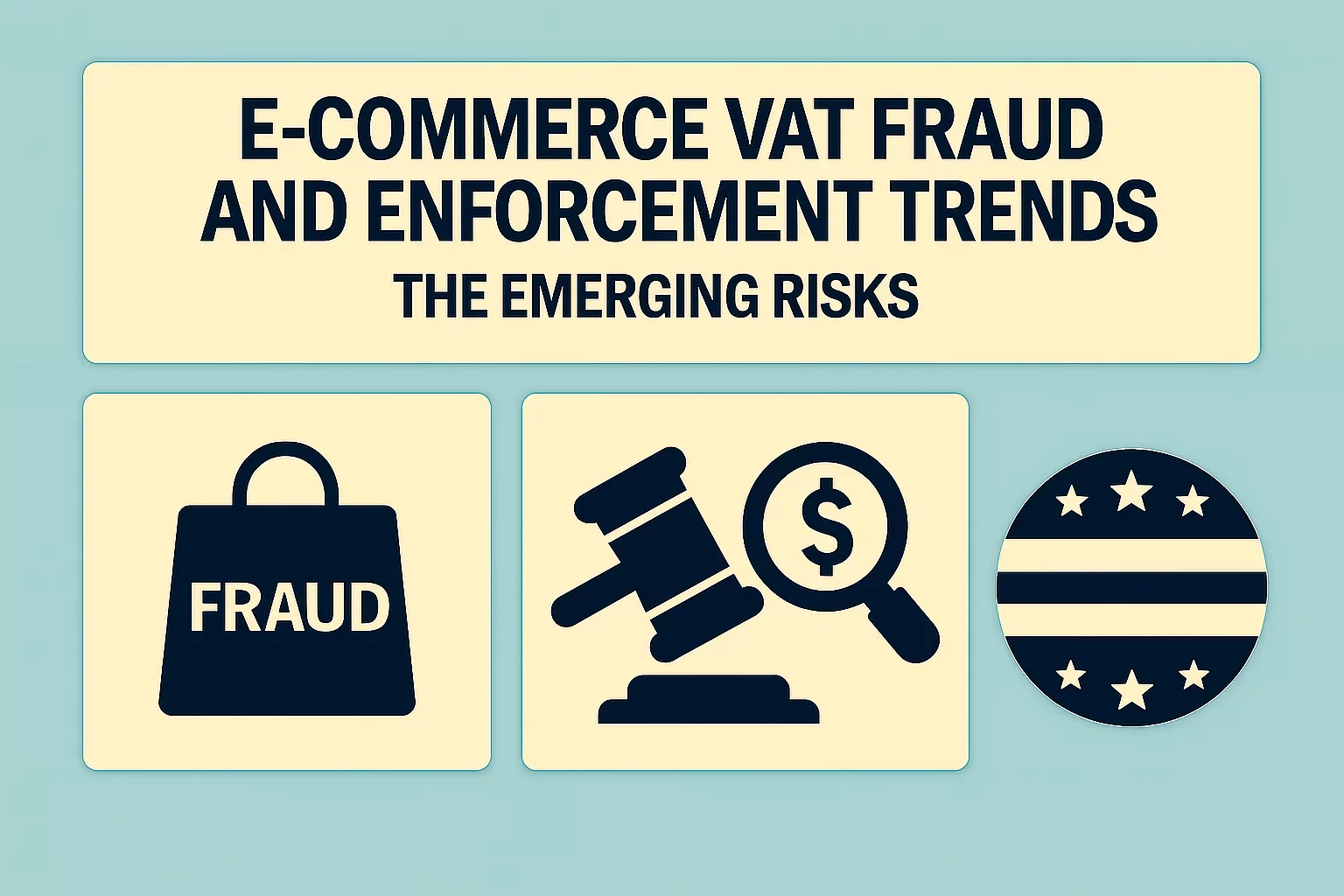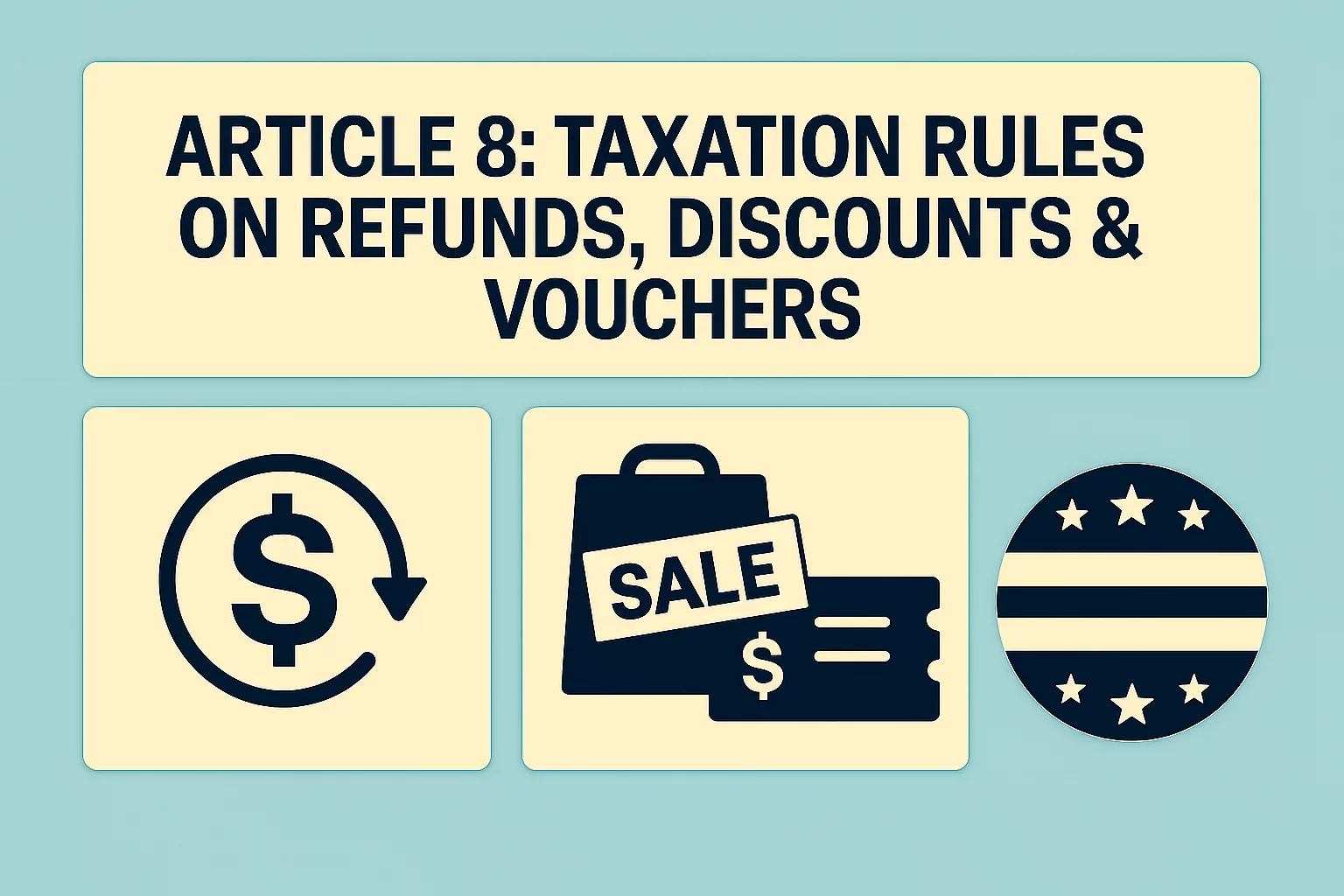The Role of Online Marketplaces in Indirect Tax Collection
Online marketplaces are becoming key players in indirect tax collection, acting as deemed suppliers and handling VAT, GST, and sales tax for global e-commerce transactions.
Online marketplaces have emerged as a dominant channel for cross-border trade, connecting buyers and sellers worldwide and influencing not only the sales process but also the supply chain, competition, and consumer choices.
Ultimately, the growth of the e-commerce sector and the magnitude of the influence of the most significant online marketplaces, such as Amazon, Alibaba, and Temu, have led to changes in policies that brought new trade, consumer protection, and taxation rules and regulations. The incredible power that online marketplaces have yielded has resulted in a significant responsibility being imposed on them by governments to collect and remit indirect taxes, such as VAT, GST, or sales and use taxes.
Online Marketplaces: Legal and Functional Definitions
Online marketplaces, electronic marketplaces, electronic distribution platforms, electronic interfaces, marketplace operators, and marketplace facilitators are all terms that may be encountered throughout different jurisdictions when searching for applicable taxability rules.
Generally, all these terms refer to digital platforms that facilitate or intermediate the sale of goods or services between third-party sellers, also known as marketplace sellers, and consumers. Besides connecting buyers and sellers, online marketplaces also provide essential infrastructure to facilitate transactions, including listings, payment processing, and logistics support.
In recent years, the definitions have evolved to align with the tax policy objectives. For example, in the European Union, the 2021 e-commerce VAT package introduced the deemed supplier rule for online marketplaces, making them liable for collecting and remitting VAT on B2C transactions, as if they were the suppliers of the goods.
Similar concepts exist in other countries, such as Australia and New Zealand within their GST systems, or Japan, which recently introduced deemed supplier rules for digital platform operators, making them liable for consumption tax. In the US, for example, the deemed supplier rules, also known as the marketplace facilitator rules, define when a marketplace operator is required to collect and remit sales and use tax on behalf of marketplace sellers.
How Online Marketplaces Handle Indirect Tax
With their designation as deemed suppliers or facilitators, online marketplaces had to adapt their systems and operations to meet indirect tax requirements. Online marketplaces are no longer just sales facilitators, but also act as tax collectors and data sources for Tax Authorities.
Considering that there is no consensus on how to engage with online marketplaces from a taxation perspective, indirect taxes may apply to low-value imported goods, all imported goods, goods transiting through the marketplace, or imported intangible products. Moreover, from one jurisdiction to another, each category of goods may be subject to a specific threshold, different applicable tax rates, and various reporting and bookkeeping requirements.
To manage this complex responsibility, online marketplaces, especially the major ones, are transitioning toward automated tax calculation engines that rely on geolocations, defined thresholds, and product classifications to determine the correct rate at checkout when a consumer makes a purchase.
Online marketplaces also directly remit collected indirect taxes to the relevant Tax Authority. In the EU, this may be completed through the EU's special regime, commonly referred to as the One-Stop Shop (OSS), and in Norway through a VAT on E-Commerce (VOEC) regime.
Additionally, the online marketplaces now play a more critical role in data gathering, and Tax Authorities rely more on them to collect and transfer any information relevant for indirect taxation compliance. Once again, these requirements vary from one country to another, which may necessitate specific data, data structures, or formats, as well as a corresponding exchange method. Therefore, online marketplaces are implementing robust IT systems to meet all these requirements.
The Impact on Marketplace Sellers
Given that the responsibility to collect and remit VAT, GST, or sales tax shifted from marketplace sellers to the online marketplaces, sellers may feel relieved. More specifically, the shift in tax liability reduced administrative and financial costs, as well as compliance risks, for online marketplaces' sellers, especially small and medium-sized businesses.
However, marketplace sellers still must understand when and how these deemed supplier or marketplace facilitator rules apply. For example, not all transactions are covered by the deemed supplier rules, in which case, sellers are responsible for tax registration and remittance.
Additionally, marketplace sellers must be aware that they are required to share relevant data with online marketplaces. With the rise of requirements to share sellers' data with Tax Authorities, online marketplaces are increasingly requesting more data from sellers. Failure to comply with these requirements may put sellers, not online marketplaces, at risk of tax non-compliance if online marketplaces can prove that the sellers provided incorrect information.
Considering that online marketplaces charge and collect VAT, GST, or sales tax, marketplace sellers must align their pricing strategies to account for tax-inclusive pricing and potential deductions by the platform.
Challenges for Online Marketplaces
The first, and potentially the biggest challenge for online marketplaces, is the technical complexity of complying with multiple tax regimes, rules, and regulations. Online marketplaces operating globally facilitate thousands of transactions in numerous jurisdictions with various tax rules, rate changes, and exemptions that differ by country, region, and sometimes product type. Maintaining accuracy and consistency across all these markets is a complex task.
Considering the dual roles that online marketplaces now play, acting both as private businesses and as public tax agents, they are expected not only to be compliant but also to actively prevent tax evasion, report suspicious activity, and implement adequate internal controls.
Lastly, online marketplaces must continually monitor evolving rules regarding platform liability, as well as court decisions in systems with established precedent law, such as the US, that may have immediate and far-reaching implications.
Conclusion
Often viewed as the largest tech companies that make consumers' lives easier, online marketplaces are becoming central players in the global effort to modernize indirect tax collection in the digital economy. With the new roles of deemed suppliers or marketplace facilitators, making them liable for collecting and remitting indirect taxes on behalf of marketplaces or e-commerce sellers, online marketplaces face increased responsibilities and compliance risks.
Nevertheless, it is to be expected that the role of online marketplaces in indirect tax collection will only grow in complexity as governments worldwide redefine their approaches to generating more revenues from VAT, GST, sales tax, and other indirect taxes.
FAQ
Online marketplaces are digital platforms that facilitate transactions between third-party sellers and buyers, often handling listings, payments, and logistics. In many jurisdictions, online marketplaces are also responsible for collecting and remitting indirect taxes, such as VAT or GST.
A deemed supplier is a legal designation where the online marketplace is treated as the seller for tax purposes. Moreover, this means that the online platform, not the seller, is liable for collecting and remitting VAT or similar indirect taxes on transactions.
Not all transactions are covered by these rules. Typically, B2C transactions are covered, whereas B2B transactions fall outside the scope of these rules. For B2B transactions, a withholding tax or reverse charge mechanism usually applies.
Complex and evolving rules and regulations across multiple jurisdictions, the integration of tax technology with existing systems, data sharing requirements, and the risk of legal liability are among the main challenges that online marketplaces face.
If an online marketplace proves to the relevant Tax Authority that the seller provided false or inaccurate information, the tax liability and penalties may be reversed and imposed to the seller, depending on local rules.
Source: European Commission - VAT e-Commerce - One Stop Shop, VATabout - Japan Consumption Tax Guide for Non-Resident Digital Service Providers, DigitalTrade4EU, VATabout - Norway VAT Compliance for Non-Resident Digital Platforms


